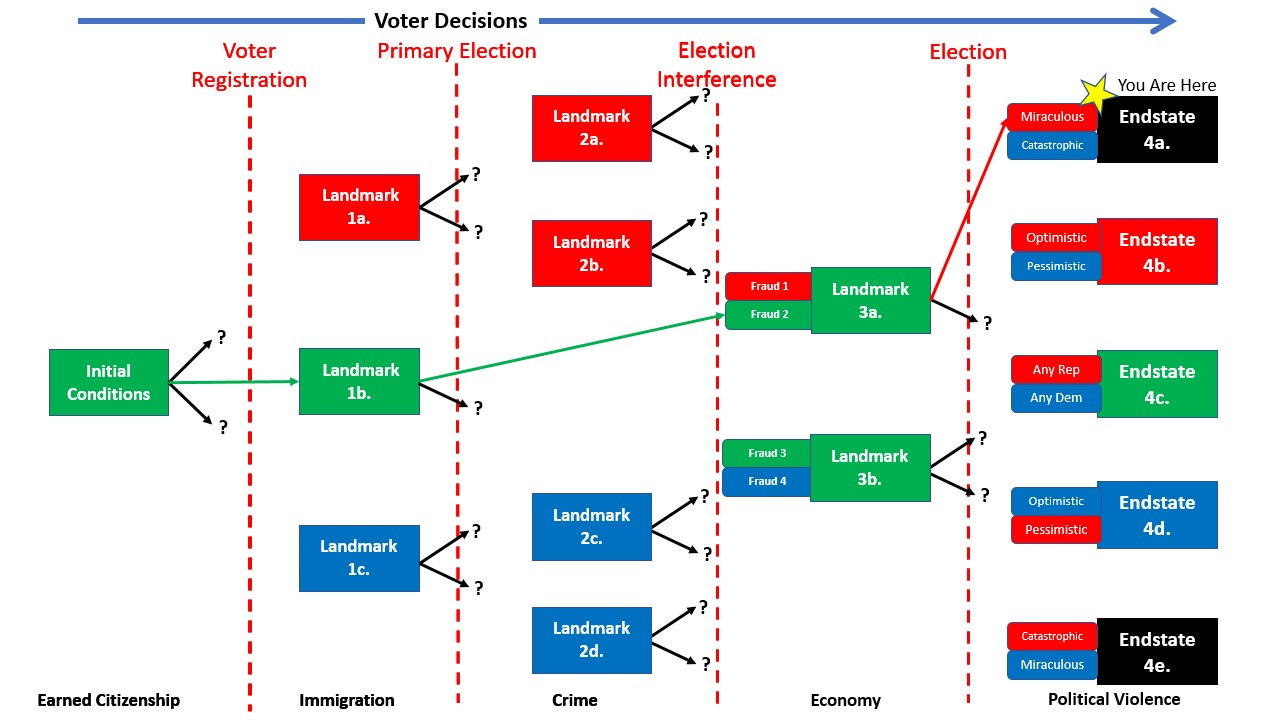Juan woke up in a great mood. Maria was just coming off her shift, preparing his breakfast before heading for bed. He gave her a squeeze and danced a few steps while humming an old tune.
“Why are you so happy?” she asked.
He stole a tortilla from the plate Maria was preparing and ate it plain. It was soft and warm, with just a hint of fried crispiness. Finally he said, “I don’t know… Even though I lost my job, I’m learning so much from Tio Pablo. It’s like he says, these elections are all just a big game. And I’m making good money playing it.”
Maria looked sad.
“What?” Juan turned in his chair, “Did I say something wrong?”
“It’s nothing,” Maria replied, turning back to her cooking.
But Juan could tell something was bothering her. “No. Tell me. What’s the matter?”
Maria remained silent for a long time. She stirred the contents of her frying pan furiously, something she did when Juan was in trouble. “You made me come here all those years ago,” she said. I miss my mother. I miss cooking together.”
Juan’s eyes widened, and his mouth hung open. He had no idea what she was talking about. But decades of marriage had taught him to hold still and keep silent when Maria started talking like this. He knew she’d tell him what he’d done wrong this time.
“I don’t want America to be just like every other country!” She turned and stomped her foot as she met Juan’s dumbfounded gaze. With one hand on her hip, she slid the pan off the heat and then pointed an accusing finger, “You told me America was more than just a place to make money! You said America was a dream, an idea. Now, you tell me it’s just like every other country? Then why are we even here?”
Oh, now I understand. Juan’s chin lifted in silent recognition of Maria’s argument, and he decided to set her straight about a few things. “Look,” he didn’t try to soothe her with his words. He’d never been very good at that. “You know I need to make money. Everybody’s counting on me. You, Sofia, and even Carlos, everybody needs me to make money.”
“That’s all your citizenship means to you?”
Juan was stung by the rebuke. “I still believe in America,” he said unconvincingly. He furrowed his brow, “Why does everyone make such a big deal about the elections? Are they really that important?”
“Don’t you think America is any different than home?” Maria challenged him.
Juan crossed his arms and leaned back in his seat. He was starting to get angry, but against his better judgment, he escalated the conflict anyway, “You remember what it was like in Mexico back then?” He could tell by the way she dropped her baleful stare that he’d scored a point with that comment. She remembered. “We didn’t have any kind of future there.”
Maria bit her lip.
“Look at everything we have now,” he waved his hands around the room. “We’re rich now. Maybe not by American standards, but in Mexico, I would be a king and you would be the queen.”
“So, it is all about the money,” Maria was down, but she wasn’t out.
“What if it is?” he shouted. “Haven’t I made a good life for us? We never could have had any of this back home, you know that!”
Maria started to cry. She always cried when Juan raised his voice.
He stood and tried to embrace her, but Maria turned away. “I won’t talk to you about the elections anymore,” she sniffed. “I don’t want to upset you. You don’t have to vote if you don’t want to. I don’t mind.”
"How can I vote?" Juan was reminded that his ballot never arrived, and he thought about his experiences with Latinos por la Libertad. "It's not gonna make any difference anyway."
I just need to worry about taking care of business, Juan thought. That’s what I’m good at.
Why is Juan Confident in Business?
Choose Option 1: Low Prices and Inflation
Choose Option 2: Low Interest Rates




